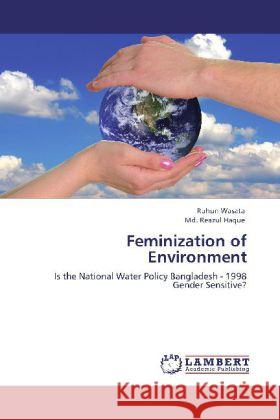Feminization of Environment » książka
Feminization of Environment
ISBN-13: 9783848436255 / Angielski / Miękka / 108 str.
Environment and women are linked like a chain to each other. Development of one can certainly be the reason of upholding the situation of the other and vis-à-vis. In the arena of water women play a key role of associating the water with the human world. Hence, we need to understand the dynamics of the inner affiliation between women and water. Accordingly, this research examined the gender sensitivity of the National Water Policy Bangladesh, 1998. The underlined causation of the research was to figure out whether the National Water Policy is gender sensitive or not so that, a more gender sensitive Water Policy framework for formulation and implementation could be recommended for future reference which can foster women empowerment in the long run. The research has been done upon the theoretical foundation of liberal feminism using the theories of Strategic Gender Interests by Molyneux and Feminist Environmentalism by Bina Agarwal and the theory of Redistribution and Recognition by Nancy Fraser. The outcome has shown that, in Bangladesh, the framed Water Policy was not generated in gender sensitive manner and there are evident flaws in implementation of the policy.











